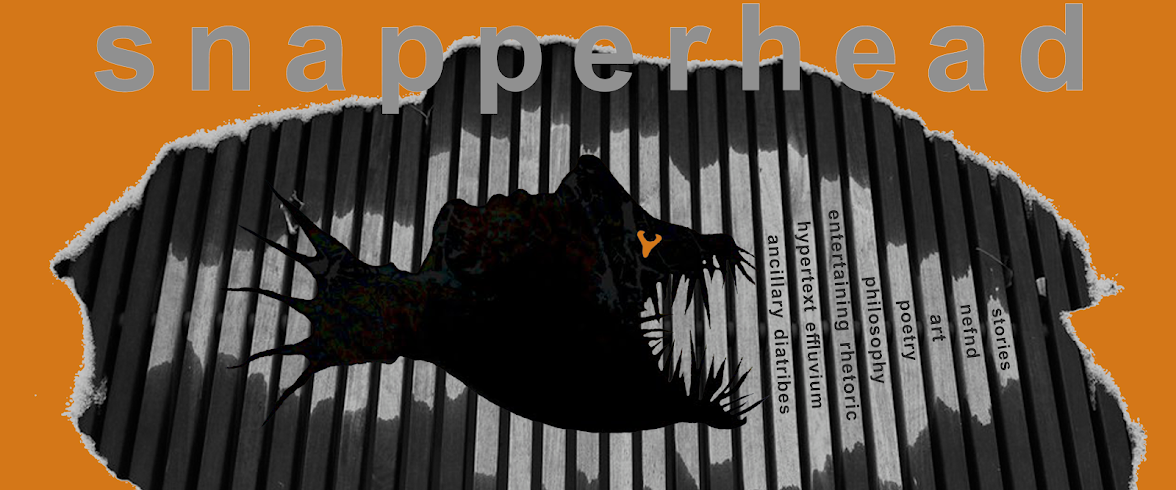 Profiling
Profiling. It's something every police officer does; all the time, every day. Every effective police officer becomes an efficient
profiler. But, the definition of profiling has been twisted-into and confused-with that of:
prejudicial behavior (by lawyers and their ilk) making it necessary for those efficient members of law enforcement to add to their repertoire:
perjurer (which "adds insult to injury," compounding the negativity). Profiling was (and still is) the best way to get the job done, it's just that now, police officers need to lie in court when they do it.
Black-marketing is an economic crime, which is enforced by US military law enforcement officials in some oversea locations. Twenty years ago, I worked as a Military Police black market investigator in South Korea.
At that time, the 27" Sony
Trinitron television was one of the more highly black-marketed items. It could be purchased by US soldiers for about $550.00 in on-post stores but was available in South Korean stores for approximately $950.00 (because the South Korean government considered high-end Japanese electronics 'luxury items').
If Private
Dingleberry wanted to make some extra money, he could buy a
Trinitron and sell it to Mister Kim for $750. Mr Kim saved $200, so he was happy. PVT
Dingleberry made $200 in an afternoon, so he was happy. But the South Korean government lost $400 in taxes. Put simply: black-market enforcement was, and still is
—tax enforcement.
A black-market investigator accomplishes the same thing as a highway patrol speed-enforcement officer. You can't (and aren't intended to) catch all; but, by
occasionally catching a few (and by maintaining a visible presence) others will slow down out of fear of being caught. Or—in the case of black-marketing—the government won't lose as much, in luxury taxes, if soldiers fear being caught.
So. Put yourself in my 1989 shoes. How do you catch someone who is legitimately allowed to purchase items but is not permitted to sell them to Koreans?
Go to the store and follow every person who buys an item that is wanted on the black-market until they either: carry it into their house/barracks, or deliver it to a Korean?
— or —
Conduct research to determine what type of person is normally targeted by the Korean black-marketeers. And then identify a "profile" of the typical person who becomes involved with black-marketeers.
As you may suspect, it was
waaay beyond futile to attempt to follow every purchaser of every item found on the black-market. And...no matter what...conducting month upon month of daily surveillance in stores is chrysanthemum-on-a-
pogostick-
amazingly-boring. The solution was (yes, you guessed it)
profiling.
I learned:
Black-marketeers, logically, targeted young risk-taker-type soldiers who wanted more money than they earned. That turned out to be: (84% of the time) 18-25 year old male Privates, Corporals, and Sergeants; (14% of the time) Korean wives; and (2% of the time) someone who did not fit the profile.
$500 (in late-1980s dollars) was almost a full months pay for a Private; about half months pay for a Corporal; but less than a weeks pay for an Lieutenant or a Captain.
Many officers could afford (and were permitted to own) their own car. Privates and Sergeants took taxis.
It became possible for me to identify a persons pay-grade...even when they were not in uniform...just by looking at their demeanor, their tattoos, their clothing, (especially shoes and shirts) their haircut, and their friends. It normally took less than ten seconds.
I could watch a person purchasing an item (say a Korean-made,
Samsung VCR, because it wasn't just
Trinitrons) and, in under a minute, I could identify if he was
going to become a black-marketer.
Some of the indicators I watched for were:
Purchase speed - A black-marketer, sent to purchase a specific item, didn't "shop". He just went to the counter and said he wanted to buy a model 1099SD
Samsung VCR.
Reference material - Since a black-marketer was sent to buy a specific item, he may have written it down or refer to a piece of paper in a
Korean's handwriting...very distinct.
Payment type - Black-marketing soldiers were, many times, fronted the cash to make the purchases by the Korean black-marketeers, and - if so - that cash was, normally, all twenties. However, most soldiers made routine "honest" purchases with a check or credit card.
I still ended up following the occasional person who "fit the profile," but didn't sell the item to a Black-marketeer. But, mostly, the people I chose to follow would attempt to sell the item to a Korean. Once they attempted to sell (or sold) the item(s), I'd arrest the soldier, and seize the item, and identify the Korean(s), if possible.
THE RUB: When asked by a defense attorney, "Mister
Glines, when and how did you identify my client as a person engaged in the illegal transfer of duty free goods to a foreign national?" I had to lie. Always.
"Sir, I was conducting surveillance on Saturday, the 13
th of November, at 1930 hours, on a known Korean black-marketeer, whom I only know by a nickname: "Donkey." I noticed your client arrive near Donkey's location with a delivery truck containing an eight point four cubic foot refrigerator. The refrigerator box bore only words in English. Your client was obviously an American soldier. I identified myself as a Military Police officer and asked your client if he lived here. At which time, he admitted that he did not. I, then, detained him and seized the refrigerator."
If I told the truth: "Sir, I watched a 19 year old man, dressed in ripped jeans, a Def
Leppard T-shirt, and $10 Converse sneakers
—which means he was a Private or, at best, a Corporal
—walk directly to the appliance counter of the PX, refer to a scrap of paper, and tell the clerk he wanted a GE Frigidaire model number 8.4ED. He then pulled a wad of over forty twenty dollar bills out of his front pocket to pay for it, which I knew was over a month-and-a-half pay, for him. So, I followed him to the PX warehouse where he loaded it on a delivery truck. Then I followed him to an off-post location in Seoul where I arrested him before he could unload the truck."
He'd have said: "What was your probable cause to begin surveillance and subsequently stop and question my client?"
And I'd have had to reply: "He looked too young and too poor to afford a refrigerator that shits ice cubes and pisses ice water out the front."
The judge would have ruled that I had no probable cause and thrown that case (and every case) out, because appearing too young and too poor are prejudicial words.
The number one reason I left law enforcement, as soon as I was eligible to retire, was: I was tired of being forced to constantly lie to make my living.
It is said an Eastern monarch once charged his wise men to invent him a sentence to be ever in view, and which should be true and appropriate in all times and situations. They presented him the words: 'And this, too, shall pass away.' How much it expresses! How chastening in the hour of pride! How consoling in the depths of affliction! — Abraham Lincoln
 The people who run the 36-hole disc golf/picnic area/swimming hole/fishing pond/campground/music venue in the countryside, northwest of Portland, have more than a dozen guard peacocks roaming their grounds. I collected this one—for you—at the beginning of the Summer during a disc golf outing.
The people who run the 36-hole disc golf/picnic area/swimming hole/fishing pond/campground/music venue in the countryside, northwest of Portland, have more than a dozen guard peacocks roaming their grounds. I collected this one—for you—at the beginning of the Summer during a disc golf outing. I will not beat them in a dimly lit cave, I will not beat them crowded on a rock, I will not beat them if depraved, I will not beat them even to shock.
I will not beat them in a dimly lit cave, I will not beat them crowded on a rock, I will not beat them if depraved, I will not beat them even to shock. I captured a rare public display of the popular-in-a-previous-century, African-American headdress, being worn by a bald member of the Caucasoid race. In other words: a bald red neck cracker wearing a blue doo-rag. Because he also wore a white t-shirt with torn-off sleeves exposing racist tattoos, and four of his friends and family members were wearing at least one item of camouflaged clothing, I feel confident about my classification.
I captured a rare public display of the popular-in-a-previous-century, African-American headdress, being worn by a bald member of the Caucasoid race. In other words: a bald red neck cracker wearing a blue doo-rag. Because he also wore a white t-shirt with torn-off sleeves exposing racist tattoos, and four of his friends and family members were wearing at least one item of camouflaged clothing, I feel confident about my classification. We went to Crater Lake and it was as snapshot-pretty as you'd expect (*oohh aahhh so bluuue*). As we were leaving the National Park surrounding the lake, a rather vaguely written portable electronic sign along the side of the highway flashed: FOST FIRE BX MM 39/44 H138. No mention of a closed road. So, about fifty miles later (with the smell of smoke gradually increasing) we were slowed by traffic cones when the two-lanes narrowed to one in several spots because of an adjacent fire.
We went to Crater Lake and it was as snapshot-pretty as you'd expect (*oohh aahhh so bluuue*). As we were leaving the National Park surrounding the lake, a rather vaguely written portable electronic sign along the side of the highway flashed: FOST FIRE BX MM 39/44 H138. No mention of a closed road. So, about fifty miles later (with the smell of smoke gradually increasing) we were slowed by traffic cones when the two-lanes narrowed to one in several spots because of an adjacent fire. On a beach with a half-mile of smooth gray, varying from torso- to Lima-bean-sized, (stacked over twenty feet deep) I fell in love with a white palm-sized skipping stone.
On a beach with a half-mile of smooth gray, varying from torso- to Lima-bean-sized, (stacked over twenty feet deep) I fell in love with a white palm-sized skipping stone.














































